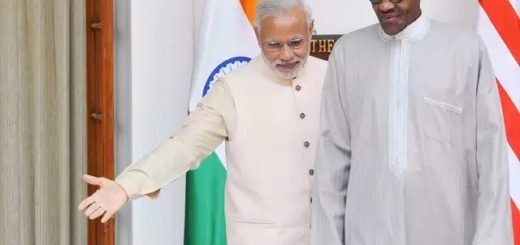Key takeaways from Russia-Africa Sochi Summit 2019

Russian President Vladimir Putin hosts the first Russia-Africa summit in Sochi. Kremlin has been planning since long to increase its influence in the African continent.
Putin assured African leaders to double the Russian trade within the continent. Russian President especially focused on education and healthcare development in the continent. However, currently, Russia dominates the African market with its sophisticated weapons but this time it wishes to enhance its African presence without any ‘political interference’.
A potential clash with China?
The erstwhile Soviet Union maintained a dominating presence in the continent and played an active role in independence movements. However, after the fall of the Soviet Union, the relations were strained between Russia and the African continent.
China picked this opportunity as a medium of expansion into the African markets and in a short span of time emerged as a key foreign business partner.
In 2000, China initiated the China-Africa Cooperation Forum, pushing ahead billions of dollars into infrastructure projects across the continent. Which further got criticised by western media calling it an attempt of promoting a new version of colonialism by Beijing.
Key Takeaways from Russia-Africa Summit
Political Cooperation
Strengthening global governance and consider reforming the UN Security Council taking into account the geopolitical realities with a view to making it a more representative body by ensuring greater participation of African States.
Also, the role of the United Nations charter reiterated by the leaders to ensure the UN’s active participation in maintaining international peace and security.
Security Cooperation
Leaders from the African states echoes, Russian aim to neutralise international terrorism in all its forms, as well as extremism, transnational crime, and trafficking in narcotic drugs, psychotropic substances and their precursors.
The declaration also includes working together in the areas of Outer Space and Biological & Chemical Weapons. And ensured to comply with the Biological Weapons Convention(BWC) of 16 December 1971 and Chemical Weapons Convention(CWC) of 13 January 1993.
It also includes close cooperation between Russia and African states to resolve and prevent conflicts in Africa as part of Silencing the Guns by 2020 Initiative launched by the African Union.
Trade and Economic Cooperation
Leaders hailed joint efforts to promote trade, investment and sustainable development and make the global economic system more socially oriented. Oppose any manifestations of unilateralism, protectionism and discrimination, as well as support the world trade regime based on the rules of the World Trade Organization.
Ensured to take steps to identify promising areas of economic, trade and investment partnership between the Russian Federation and the African Union, as well as the leading subregional organizations: the Arab Maghreb Union, the G5 Sahel, the Southern African Development Community, the Common Market for Eastern and Southern Africa, the East African Community, the Economic Community of West African States, the Economic Community of Central African States, and the Intergovernmental Authority on Development.
Legal Cooperation
Adhering to the principles of international law, as reflected in the UN Charter and the Declaration on Principles of International Law concerning Friendly Relations and Co-operation among States in accordance with the UN Charter adopted on 24 October 1970.
The leaders agreed to adhere to the principle of non-intervention in the internal affairs of States and condemn as a violation of this principle any interference by States in the internal affairs of other States with the aim of overthrowing legitimate governments. Consider the extraterritorial application of national law by States in violation of international law as an example of violation of the principle of non-intervention in the internal affairs of States.
Scientific, Technical, Humanitarian, and Information Cooperation
Facilitate cooperation in joint research projects, greater collaboration among universities and major research centers of the Russian Federation and the African States, and organization of scientific conferences and seminars, encourage further exchanges, joint training, and cooperation in the academic field, as well as in culture, education, technology, sports, health care, tourism and mass media.
Strengthen national health care systems and improve their reliability and resilience in combating epidemics, pandemics and other public health challenges. Joint efforts should aim, inter alia, at developing national and local capacity by improving competent, productive, responsible, transparent, equitable and accountable to the State health care systems, which should help improve the quality of basic medical services, increase in scientific research and development, and greater economic capacity of health care service providers.
Cooperation in Environmental Protection
To strengthen efforts to address climate change in Africa, transfer necessary technologies, build the capacities and enhance the abilities of African States to build resilience against and adapt to the negative impact of climate change.


















